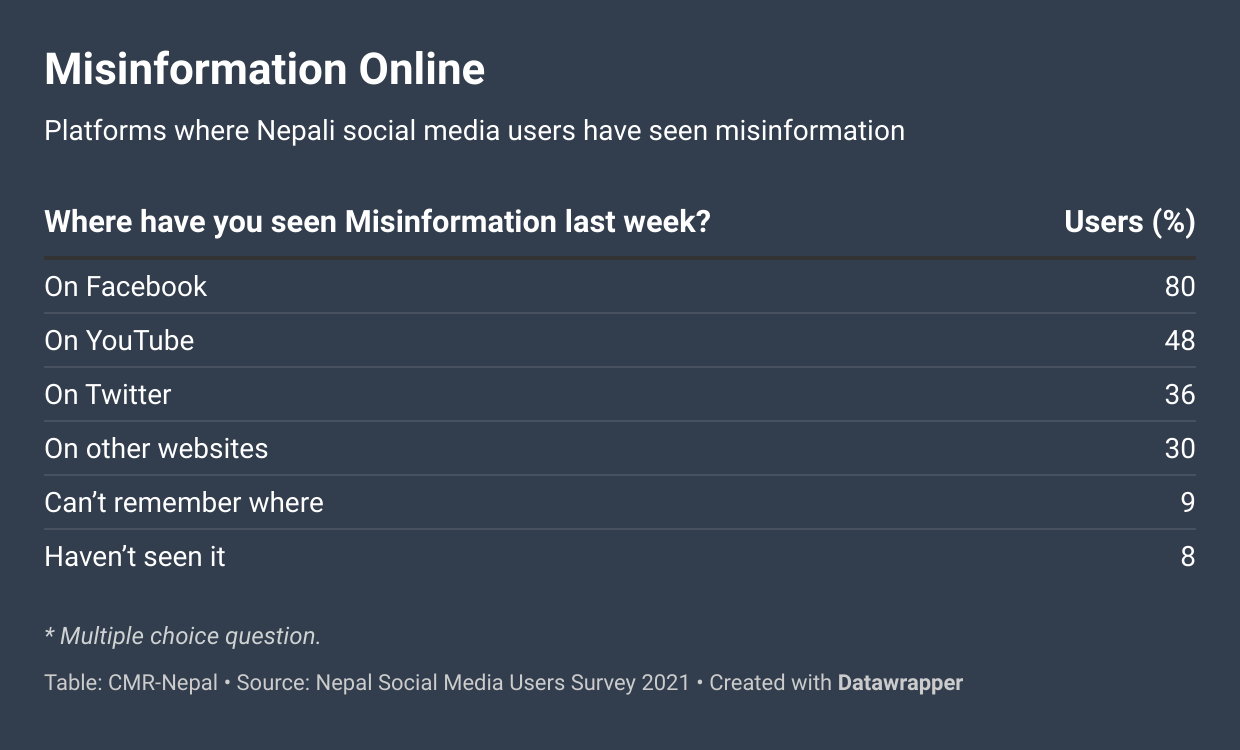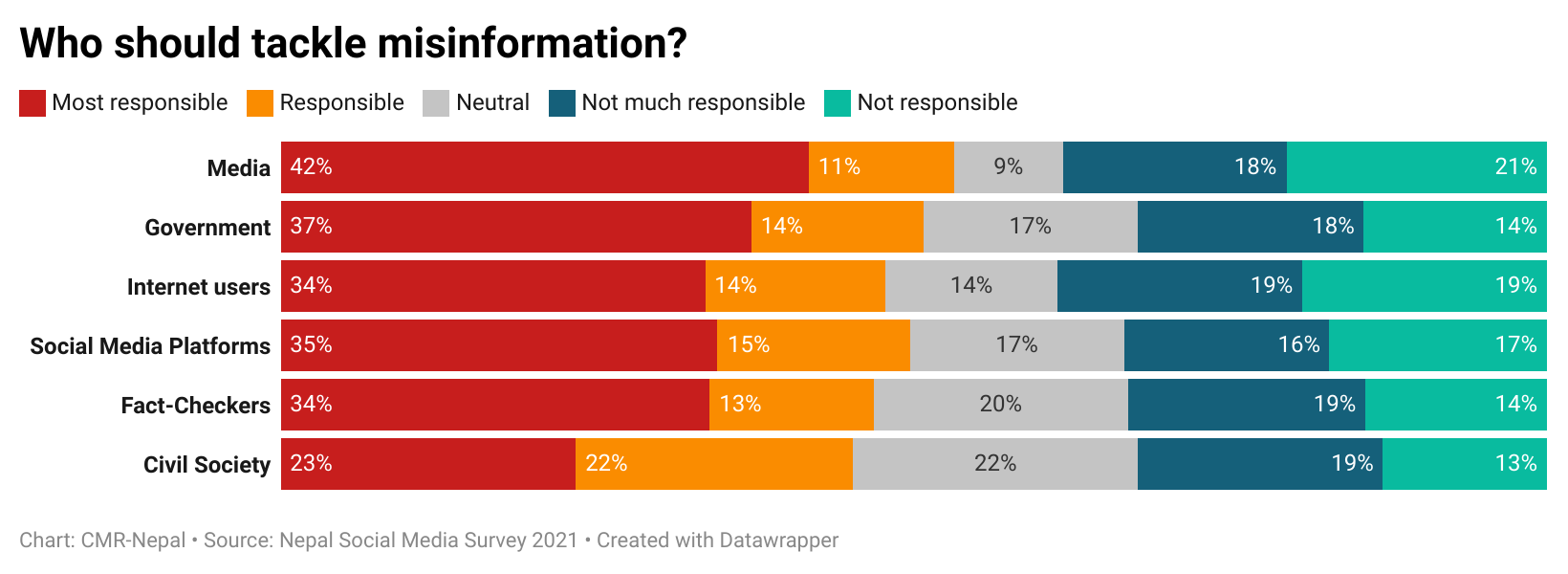More than 9 in 10 social media users in Nepal receive misinformation online, the latest survey by the Center for Media Research – Nepal revealed.
According to Nepal Social Media Users Survey 2021, 91.8 per cent of the respondents said they have seen misinformation online in last seven days whereas 7.5 per cent said they have not seen any disinformation online last week.
Facebook is the biggest platform where most Nepali social media users saw disinformation as 79.8 per cent of respondents who saw misinformation said they saw it on the social networking site. Among them, 23.3 per cent said they only saw misinformation on Facebook and not on any other platforms.
YouTube, the video streaming site, was the platform where 48.1 per cent saw misinformation, whereas 36.3 per cent saw misinformation on Twitter and 30.3 per cent saw it on websites.

Nearly nine per cent couldn’t remember in which platform they saw misinformation. And although there was choice of TikTok, only a few respondents mentioned the platform. Many of the users saw misinformation in multiple platforms as only 25.8 per cent of those who have seen misinformation named only one platform, according to CMR-Nepal survey.
Is/will misinformation be a problem for our society and politics?
More than two-third (75.9%) social media users in Nepal believed that misinformation is already a problem to our society and politics.
A little more than 12 per cent think it will create problem in future and further nine per cent think it may already have been a problem. In total, 97.8 per cent of Nepal’s social media users think misinformation is or will be a problem to our politics and society.
Only a very few, 0.2 per cent, believe it not a problem now. Rest either did not reply to the question or blamed weak journalism or commercial interest of mainstream media for misinformation.
Who should tackle misinformation?
The CMR-Nepal survey also asked respondents who were responsible to tackle misinformation.
Most social media users put media as the most responsible agency to tackle misinformation online. About 49 per cent of all respondents put media on most responsible side whereas the 47 per cent put government on most responsible side.
About 44 per cent considered users as responsible, and equal number of respondents considered social media platforms as responsible. 42.1 per cent of the respondents believe fact-checkers are responsible to tackle misinformation online.
Those considering civil society as responsible to tackle misinformation online were 40 per cent. Some, about 14.4 per cent, considered there are other agencies most responsible and listed Press Council of Nepal, academic institutions, police, parents, business organizations and political parties as other stakeholders.

The survey was conducted online in November 2021 and 403 valid responses were analyzed for the report. Among the respondents, 13.15 per cent identified themselves as female; one fourth (24 per cent) were between the age group 31 to 35 years whereas those between 36 to 40 years made of 19 per cent. Altogether, between 21 to 40 years old made up three-fourth of the respondents.
The complete report of the Nepal Social Media Survey 2021 is available here.
